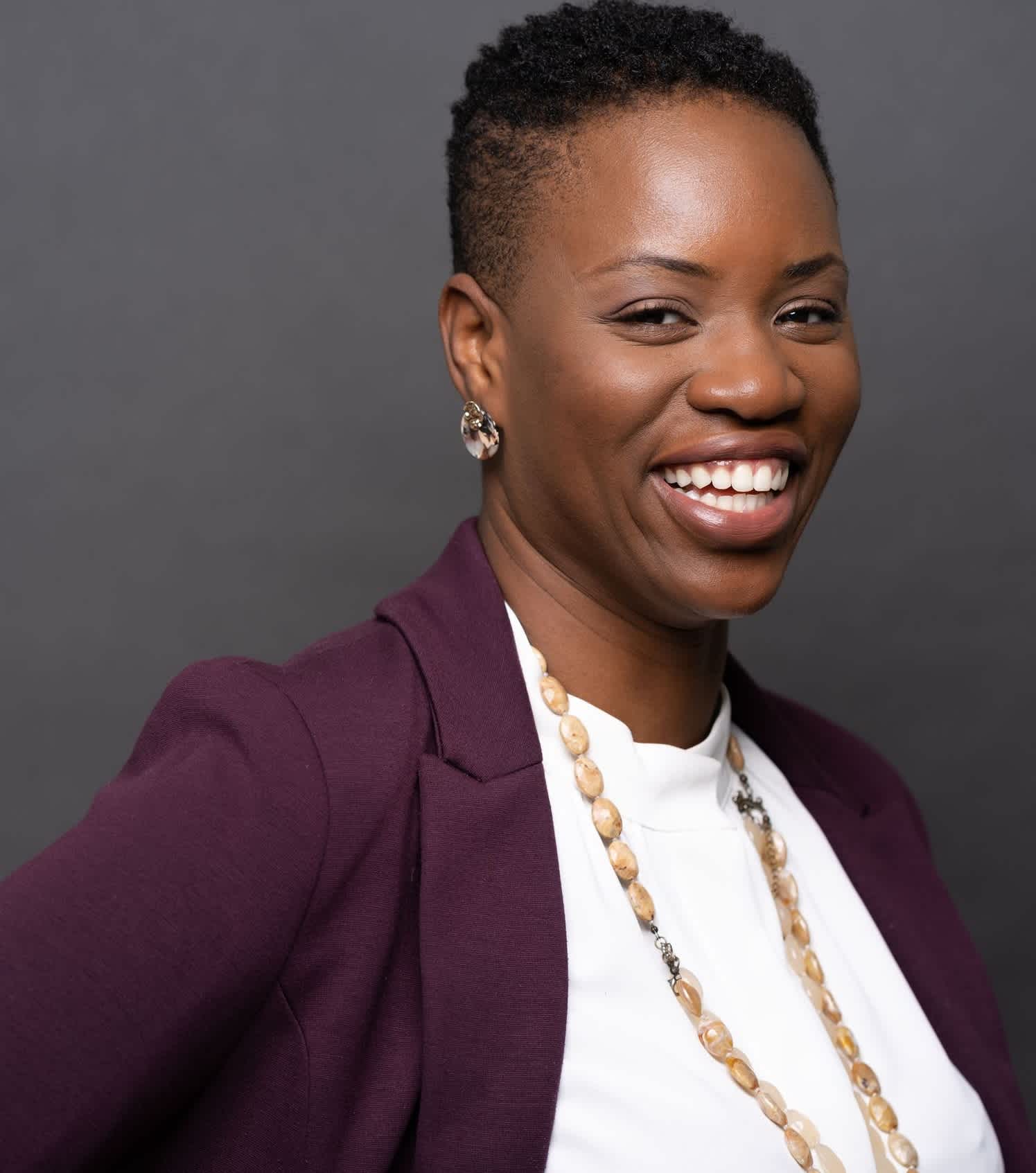Swyft Spotlight: The Heartrending Story of Team K9's Hero Dogs
Team K9, founded by Philip Corrado, uses specially-trained explosive-detecting dogs to help keep people safe at major venues. The hero dogs of Team K9 have done security at a variety of venues, from Coachella, the SEMA awards, to the NBA Championships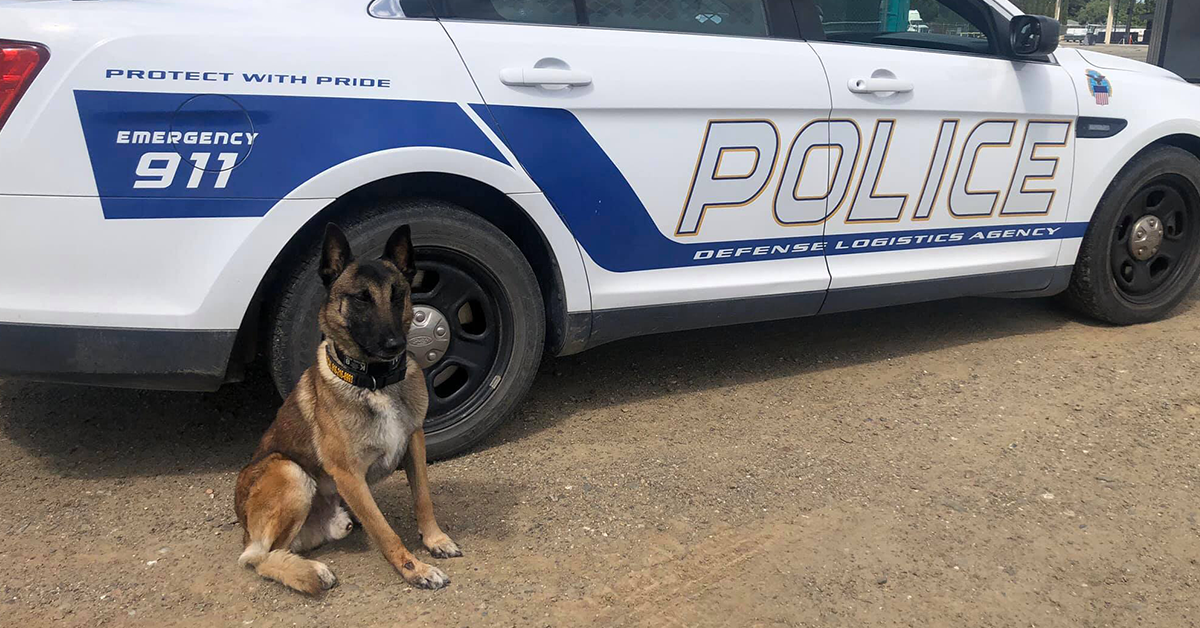
The world we live in is not always a safe place. We are fortunate to have courageous first responders who brave the dangers to protect the rest of us. However, not all heroes walk on two legs.
Team K9 uses specially-trained explosive-detecting dogs to help keep people safe at major venues, including concerts, sporting events, and tech conferences. These hero dogs have done security at Coachella, the SEMA awards, and the NBA Championships.
In their hometown of San Francisco, these protective pooches have provided security at major tech conventions and corporate events for Microsoft, Google, and Facebook. They’ve kept concertgoers safe for dozens of artists, including Shakira, Madonna, Mumford and Sons, and Kendrick Lamar. They’ve even worked the hit Broadway musical Hamilton.
Unfortunately, social distancing imposed by COVID-19 has caused most of these big events to be delayed or canceled, cutting off the team’s main stream of revenue. This is why Swyft Filings is proud to name Team K9 as one of our Swyft Gives Back Grant Program recipients.
Today we sit down with Team K9’s human founder, Philip Corrado, who informs us the grant will be used to help feed nine large, hungry hero dogs and pay for some badly-needed vet bills.
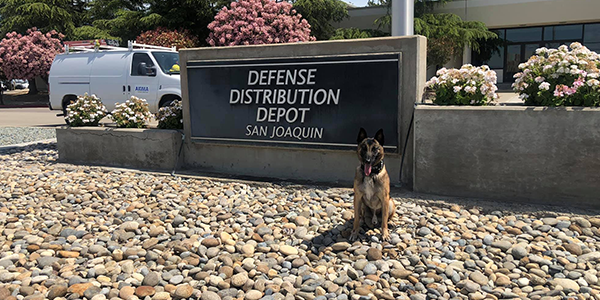
Swyft Filings: K9 bomb detection is an unusual line of work. What’s your background, and how did you get involved in this business?
Originally, I was in the repo industry. Helping a police dog trainer after work was my form of stress relief. I quickly noticed I loved working with dogs. My wife would also come to the kennel, and we learned to work and train both the dogs and their police handlers.
Eventually, I wanted to get away from the repo industry. We started Team K9 with the intention of offering narcotics detection. However, we started getting calls to work detecting explosives, so we spent the next six months preparing for that by learning and training with law enforcement agencies.
SF: What does your typical workday look like?
A normal working day begins around 6am — potty dogs, feed dogs, and leave for work. Our hours vary. We usually arrive two hours before an event starts and work until the event is over. We then go back to the kennel to wipe down and clean the dogs, feed them dinner, and put them to bed.
On a non-working day, it’s up at 6am, let the dogs out, and feed by 7. Then training and exercise throughout the day. Feeding time is at 6pm. From 7pm to 9pm, each dog gets their own time to socialize with us. We let the dogs out to potty and put up for the night from 9pm-10pm.
SF: These must be pretty smart dogs. What kind of training do they require?
Training is ongoing. At a minimum, we must train 16 hours per month for our certification to remain valid. We also train with a law enforcement official four hours every week. Training consists of making sure the dogs are looking for their targeted odor. We use scientifically-developed training aids as well as real explosives and narcotics.
SF: Which is easier — training dogs or training people?
I would say dogs are much easier to work with than people. They listen, do their job, never complain, and always show up for work.
But it isn’t all fun and games; it’s a life-long and lifestyle commitment. It’s a lot of work to keep canines at their best.
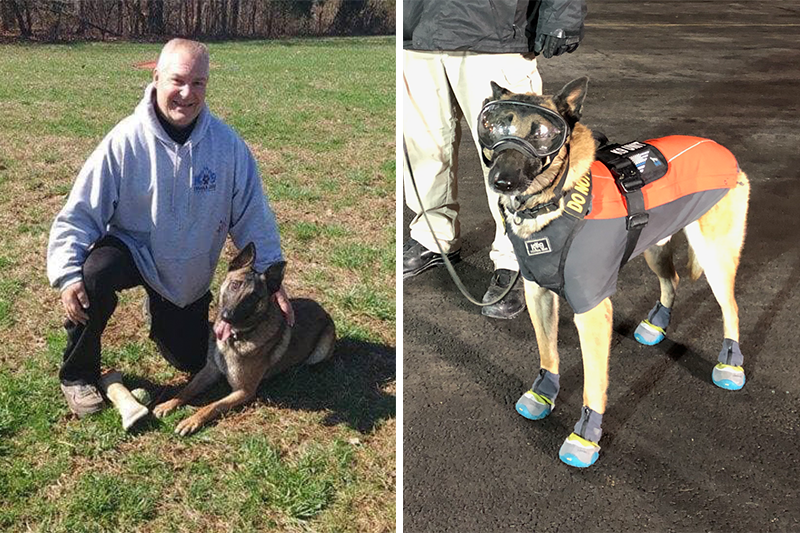
SF: What part of this business do you find most challenging? Most satisfying?
Most challenging is placing one of our dogs with a new handler. It’s crucial to find the right person, one who will take care of the dog and take the job seriously. We put a lot of love and effort into these dogs and have to trust that we’ve made the right decision. Explosive detection at large events is by far the most important thing we do. The most satisfying is always at the end of an event when everyone goes home safe. We know we did our job that day!
SF: How has COVID-19 affected your business?
COVID-19 has dramatically changed us. Before the quarantine, about 95% of our work was sporting events, concerts, large festivals, and almost every tech convention in San Francisco. All of these events have either been canceled or postponed, and we’re now seeing some of the medium size events canceling until next year.
SF: We heard you have some unfortunate vet bills. Could you tell us more about that?
2020 has not been kind to us so far.
Our oldest dog, K9 Zane, an 11-year-old retired contraband dog, was diagnosed with anal sac cancer. He was given about six months to live, and there’s not much we can do other than treat him and make sure his final months are comfortable and happy.
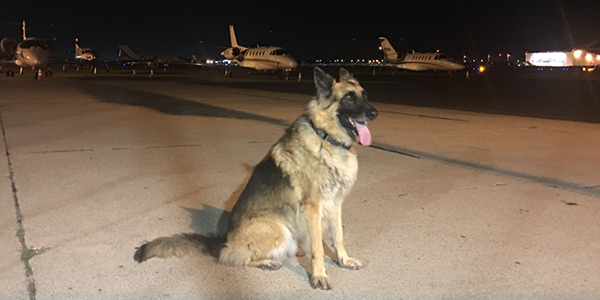
And then there is the sad story of K9 Rascal, our 5-year-old Belgium Malinois explosives-detection dog.
In the first weekend of February, we noticed Rascal looked bloated and rushed him to our normal vet. They performed several tests and weren’t sure what was wrong. That Monday, we took Rascal to the School of Veterinary Medicine at the University of California, Davis, where they also performed several tests. They told us he had late-stage liver disease. His liver was massively failing.
I will never forget the doctor telling me Rascal had 30 to 45 days left to live. That same day, I told the doctor we would make arrangements to put him down. She said she’d like to put Rascal on some meds that might extend his life by up to a year. Of course, I said yes.
Before these bills, we had about 7 grand in our care credit account. Between the two dogs, we maxed it out in four weeks. Meds for Zane run about $150 per month, and Rascal’s cost about $450.
What really sucks is this whole thing went down as the country went into lockdown. Everything shut down. We had to scramble to locate medication and prescription food. UC Davis even closed, but Rascal’s doctor continued to call and check on him. We took on the role of taking care of him the best we can.
In late March, he started having neurological issues. We had hoped to keep him working, but as a bomb dog, he HAS to be at 100%. Anything less just will not cut it.
I made the extremely difficult decision to retire Rascal at the age of 5. It was awful. He’s a total badass and should be in the prime of his life.
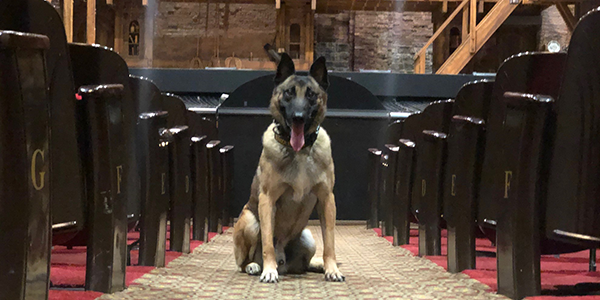
SF: Could you tell us more about Rascal?
Rascal was my number one bomb dog. He and I are very close. That dog has flown all over the country with me.
In February 2019, we were invited to work the NBA All-Star Game In Charlotte, North Carolina. I remember that event because that’s the weekend we truly clicked. We trusted each other and knew our lives depended on that bond.
During that trip, Rascal got his picture taken with the wives and girlfriends of several NBA superstars. He met Kawhi Leonard of the L.A. Clippers at the airport when we came home. In 2019 and 2020, Rascal did security for the NBA away teams when they came to San Francisco and Sacramento during the regular season. He also worked the 2019 NBA Playoffs and the 2019 and 2020 NBA Championships.
Last summer, he worked “Day N Vegas,” a huge hip hop concert in Las Vegas. A rapper named Offset from the group Migos literally had his caravan stop so he could get out and pet the dog. Rascal was fully booked six months in advance and was supposed to work VIP Detail for Coachella and Stagecoach this April.
He had several verified good hits confirmed by bomb squads at a few major events and even located a few guns. And all this was just his side hustle. Rascal’s main job was the on-call explosive detection dog for the Department of Defense’s Defense Logistics Agency police force.
In my estimation, that dog has helped keep millions of people safe!
SF: Is there anything else you want people to know about Team K9?
Yes. We would like to thank you for the generous grant that will help tremendously with medicine and food. When all of this is over and we start to recover, we truly plan on trying to pay it forward.
I also want everyone to know these dogs are a huge part of any handler’s life. We don’t talk about the end game too often, but I can tell you it’s heartbreaking when we lose these animals to sickness. These dogs are heroes that often go unnoticed or underappreciated for the role they played.
Rascal will live out his life in our home, in as much comfort as we can possibly provide.
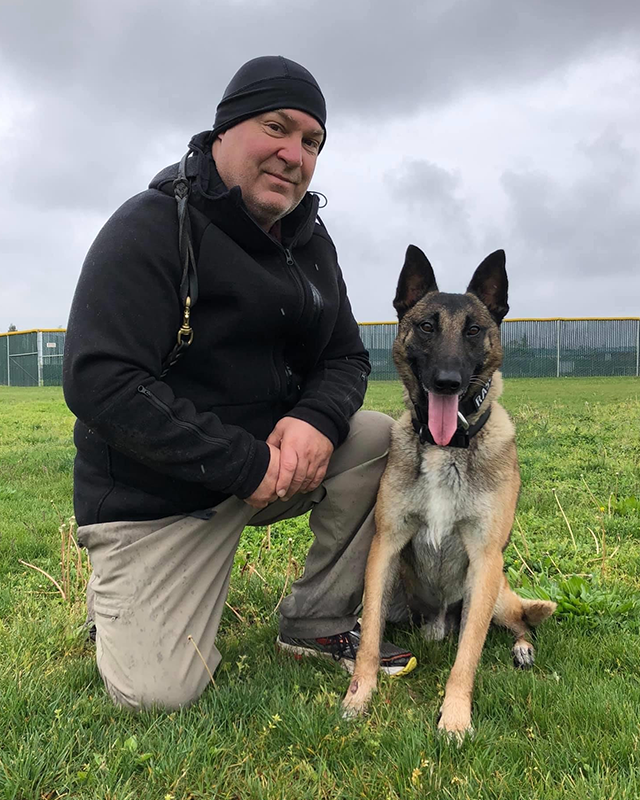
We at Swyft Filings think Rascal is a very good boy. We thank Philip, Rascal, Zane, and all the other heroes on Team K9, of both the two-legged and four-legged varieties, for all they’ve done to ensure public safety. If you want to know more about Team K9 and the work they do, please visit their website at goteamk9.com.
If you’d like us to spotlight your business or nonprofit, please send your story in 500 or fewer words to [email protected].
Swyft Blog
Everything you need to know about starting your business.
Each and every one of our customers is assigned a personal Business Specialist. You have their direct phone number and email. Have questions? Just call your personal Business Specialist. No need to wait in a pool of phone calls.

